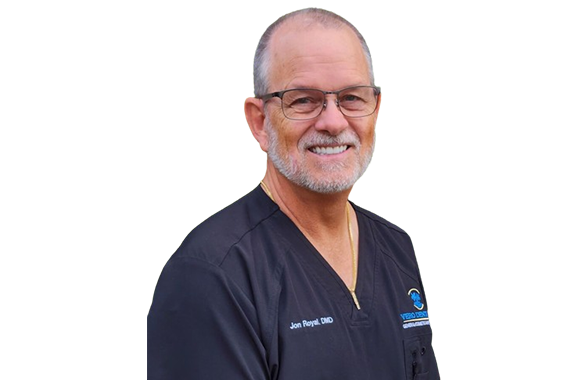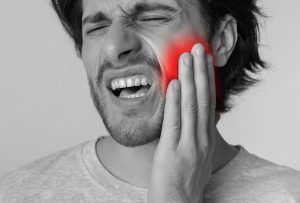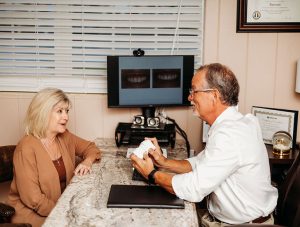What Is Degenerative Joint Disease?
Degenerative Joint Disease (DJD), also known as osteoarthritis, is a chronic condition characterized by the gradual breakdown of joint cartilage and the underlying bone. This condition often leads to pain, stiffness, and reduced mobility, particularly in the hands, knees, hips, and spine. As one of the most common forms of arthritis, DJD affects millions of people worldwide, especially those over the age of 50.
If you’re dealing with TMJ problems, contact our dentist in Vero Beach today at (772) 778-5550 to schedule your consultation. We’ll evaluate your health and develop a treatment plan to relieve pain and get you on track to better days.
Causes of Degenerative Joint Disease
People may develop osteoarthritis for many reasons, including:
- Aging: The natural aging process is the most significant risk factor for DJD, as the wear and tear on joints accumulate over the years.
- Genetics: A family history of osteoarthritis can increase your risk of developing the condition.
- Injury: Previous joint injuries, such as fractures or ligament tears, can lead to DJD.
- Obesity: Excess body weight places additional stress on weight-bearing joints, accelerating cartilage degeneration.
- Repetitive Stress: Jobs or activities that put repetitive stress on a particular joint can contribute to the development of DJD.
Osteoarthritis Symptoms
Symptoms of osteoarthritis in the TMJ vary from person to person. Some common symptoms include:
- Joint Pain: Aches and pains in the affected joints, which may worsen with activity and improve with rest.
- Stiffness: Especially noticeable in the morning or after periods of inactivity.
- Swelling: The joint may appear swollen and feel tender to the touch.
- Reduced Range of Motion: Difficulty moving the joint through its full range of motion.
- Creaking or Cracking: A sensation or sound of the joint “creaking” during movement.
If you’re suffering from any of these symptoms, call our Vero Beach dental office at (772) 778-5550 to schedule an appointment.
Diagnosis of Degenerative Joint Disease
Clinical Evaluation
A thorough medical history and physical examination are crucial in diagnosing DJD. During the evaluation, the doctor will assess joint tenderness, swelling, and range of motion.
Imaging Tests
- X-rays: The most common imaging test for DJD, X-rays can reveal joint space narrowing, bone spurs, and other signs of cartilage loss.
- MRI: Magnetic Resonance Imaging (MRI) provides a more detailed view of the joint’s cartilage, muscles, and other soft tissues, helping to identify early DJD changes.
Laboratory Tests
While there’s no specific blood test for DJD, doctors may order tests to rule out other forms of arthritis, such as rheumatoid arthritis.
Treatments
If you’re dealing with TMJ pain due to degenerative joint disease, you may try the following treatments:
- Medications: Over-the-counter pain relievers, such as ibuprofen or acetaminophen, may help alleviate pain and reduce inflammation of the affected joint. Prescription medications, such as muscle relaxants or corticosteroids, may also be prescribed in some cases.
- Physical Therapy: Seeing a physical therapist can provide you with exercises and stretches that can help strengthen the muscles around the jaw joint and improve mobility.
- Splints or Oral Appliances: Wearing a splint or oral appliance can help reduce stress on the TMJ and prevent further damage.
- Joint Replacement Surgery:
- Total Joint Replacement: In cases of severe DJD, the entire joint may be replaced with a prosthetic joint made of metal, plastic, or ceramic.
- Partial Joint Replacement: Only the damaged part of the joint is replaced, preserving more of the natural joint.
Preventing Osteoarthritis
Maintain a Healthy Weight
Keeping your weight within a healthy range reduces the stress on your joints, particularly the knees, hips, and spine.
Stay Active
Regular exercise strengthens the muscles around your joints, improving stability and reducing the risk of injury.
Protect Your Joints
Avoid repetitive movements that can strain your joints, and use proper body mechanics when lifting heavy objects.
Balanced Diet
A diet rich in vitamins, minerals, and antioxidants supports overall joint health and can help prevent DJD.
Frequently Asked Questions
Can degenerative joint disease be prevented?
While degenerative joint disease cannot be entirely prevented, there are steps you can take to reduce your risk of developing the condition. Maintaining a healthy weight, practicing good posture, avoiding excessive jaw movements, and wearing a mouth guard during high-impact activities can help protect your TMJ and reduce your risk of degenerative joint disease.
Is degenerative joint disease a common condition?
Yes, degenerative joint disease in the TMJ is a relatively common condition, especially in older adults. It’s estimated that around 10 million people in the United States are affected by TMJ disorders, including degenerative joint disease.
Find Relief for Symptoms of Osteoarthritis
If you’re experiencing jaw pain, stiffness, or limited mobility, see a doctor or dentist for an evaluation. Degenerative joint disease can be a chronic and debilitating condition, but with proper treatment and management, you can improve your quality of life and reduce your symptoms.
Contact our dentist today to schedule your consultation for TMJ in Vero Beach. Call us at (772) 778-5550.

Get Your Complimentary
Consultation or 2nd Opinion
- Exam
- Full mouth X-ray
- Private Consultation with Doctor ($350 value)
- 3036 20th St,
Vero Beach, FL 32960 - (772) 778-5550
Working hours
- Monday: 8am - 5pm
- Tuesday: 8am - 5pm
- Wednesday: 8am - 5pm
- Thursday: 8am - 5pm
- Friday: 8am - 1pm
- Saturday & Sunday: Closed


